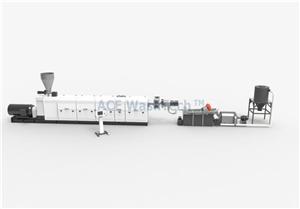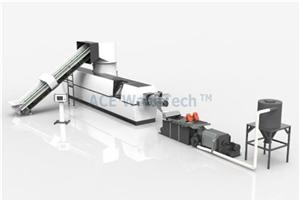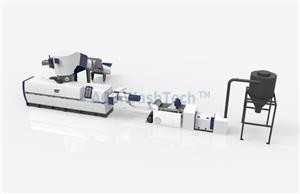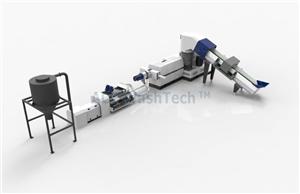Buy Low price soft plastic washing recycling line Factory Cost
soft plastic washing recycling line
The first step is always important, but you need the second step, the third step, or even more steps to really achieve something.
Banning single-use plastic bags in supermarkets is a huge leap forward because it will reduce the use of millions of plastic bags in China in the future. But there are still many old houses - wet in the gutters, muddy, blowing around on the beach, trapped in trees.
In addition, there are many other single-use plastic bags that have not been affected by the ban, such as those containing frozen peas, cotton balls or biscuits.
However, they recognise that the ban is a blunt and potentially counterproductive way, as it can lead people to do other things, such as putting packed plastic bags in kitchen bins rather than using old ones in supermarkets.
Plastics are everywhere. What you read is made of plastic or wrapped in plastic. The interviews were written in plastic, stories were written on plastic keyboards, and proofreading was made on plastic monitors.
It's hard to imagine a world without plastic. However, just about 60 years ago, before manufacturing costs fell and entered the era of mass production, there was once.
The growing assertiveness of China, the global recycler, has hampered many countries, including New Zealand, in their strategy of moving plastics overseas and as a business as usual.
Buy soft plastic washing line Factory Cost
On the South Island, soft plastics - defined by Christchurch City Council as anything you can "pinch in your hand" - are no longer recycled, even if they can be recycled. However, any clean, hard plastic - "mixed plastic" - can be recycled as long as the numbers 1 to 7.
However, in Auckland, due to its economies of size, these plastics can still be recycled.
PET is the chemical name of polyparaphlycol ester, a chemical name. The plastic is used to make two-litre bottles of soft drinks, water bottles, salad dressings, cooking oil, shampoo, hand sanitizer and carry-on food containers. It even exists in carpets, clothes and tennis balls. DuPont chemists first synthesized PET in the 1940s, and they probably never thought that 4.8 million to 12.7 million tons of plastic a year would flow into the ocean in 70 years. Since the invention of plastics, humans have produced more than 8 billion tons of plastic. About half of all new plastics are turned into waste every year. Some scientists predict that by 2050, the oceans will have more plastic than fish.
VolCat developers want to reverse this destructive trend. "In the next five years, plastic recycling technologies like VolCat will be used worldwide to combat plastic waste around the world," the researchers said in a statement. "People who buy a bottle of soda or a box of strawberries at the grocery store will know that instead of going into the sea, the plastic they buy will eventually be reused and put back on the shelves. "
Think about how much material would be reused if plastic recycling did not require cleaning, sorting and handling separately. Now, IBM researchers have developed a new chemical process called a volatile catalyst that eliminates these steps. VolCat's recycling grinds the plastic, adds a chemical catalyst and cooks at temperatures above 200 degrees Celsius. These chemicals corrode the polymer chain, creating a white powder that can be made into new containers.
Low price soft plastic washing recycling line
With the Packaging Forum's soft plastic recycling program suspended from December 31, 2018, the Oakland Council encouraged Oaklanders to work to reduce their consumption of soft plastics.
"Soft plastic recycling is not a taxpayer-funded municipal service. However, the council's goal is to help Aucklanders achieve zero landfills by 2040," said Paru Sood, director of the Waste Solutions Project.
"This means instructing Aucklanders on how to minimize the use of disposable packaging, including soft plastics. "
Auckland Council's roadside recycling service is unable to collect soft plastic packaging because the processing equipment is designed to handle only hard plastic. We urge Aucklanders not to put soft plastic recyclables in roadside recycling bins, as they can be stuck in sorters at recycling bins and can pose significant hazards and risks.
Think carefully when you buy things. Check the options when you purchase the product and check the amount of flexible plastic packaging. Find the ideal alternative, no packaging or those that can be reused or recycled
Put your produce directly in your shopping cart and then directly in a reusable shopping bag at the cash register. You don't need to use soft plastic bags for every product. If you really want to use a separate bag for each item, you can reuse old zippers/soft plastic bags, paper bags or lightweight mesh/cloth bags. You can also use old t-make your own eco-bag.




